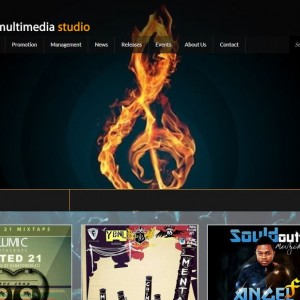
5 Technologies that every Entrepreneur Needs
These days, becoming an entrepreneur could be said to be a lot more accessible than it has in the past. The internet has opened up a world of opportunity, as has the fast-paced evolution of technology. That said, nobody said that it was easy becoming a successful business person, so here’s some essential technologies that every entrepreneur needs to get them well on the way to earning their first million.
#1: The Cloud
The cloud has been around for over a decade, despite the fact that it’s seen as a new technology. Think Gmail – that’s a cloud service – and you’ll get an idea of just how long it’s been about.
The cloud allows business owners with limited funds to work on a level playing field when it comes to tech. It reduces the need for capital expenditure, being a pay monthly service, which incarnation you choose.
There are three main types of cloud service:
- SaaS – software as a service
- PaaS – platform as a service
- IaaS – infrastructure as a service
There are other services available such as security, but for the most part the majority of cloud services fall into one of these categories. Software as a service has been the most popular to date, but infrastructure as a service is seeing a lot of movement in the last couple of years. With cloud services, you can host an entire desktop and all its apps in the cloud so that you can access from anywhere with an internet connection, on any device.
Infrastructure as a service allows you to have an entire IT infrastructure, with servers, web servers, mail servers, etc., all hosted within a data centre. This means that you don’t have to worry about downtime, disaster recovery, backup and upgrades – all of those costly things that can be a barrier to being successful.
Platform as a service allows you to set up your own development areas, again doing away with the need for purchasing high end computer equipment.
The cloud is a great enabler and every entrepreneur can use some of it, for calendars, mail, backup and much, much more.
#2: Smartphone/Tablet
The mobile revolution is well upon us and as such, any entrepreneur worth their salt needs a decent smartphone or tablet. You can have both of course, if you like. The choice you make is completely up to you and your preferences, but I would suggest that the iPad remains the best choice when it comes to tablets. I have owned one since they first launched and upgraded to the Air this year.
Everything about the iPad is great. The screen, the apps, usability, speed, etc., it’s light, it has a camera and whilst you can settle for the Wi-Fi model, I enjoy the 3G aspect. It’s great for travelling as you can switch on Maps and you have a large screen for directions. The only downside is when using 3G and navigation, the battery reduces very quickly.
When it comes to smartphones, many people prefer Apple too but despite the ability to sync everything, I have never liked iPhones as much as Samsungs and more recently, the Sony Xperia. The latter is a tough handset which I have seen continue working in poor weather when friends’ iPhones and HTC Ones have failed. It’s also novel to be able to take video underwater.
3: Google Analytics
For a free bit of software, Google Analytics is incredibly powerful and necessary for any entrepreneur who has a site to monitor. Without it, how on earth can you analyse traffic and decide where you can improve.
Now with even more advanced features, analytics allows you to monitor where your traffic is coming from, as well as how long people are spending on the site, the pages they visit and your most popular content. You can also set up remarketing to target visitors who have abandoned shopping carts and more.
Most marketers would be lost without Analytics with good reason and if you’re an entrepreneur, knowledge is power and you can’t have enough of it. If you’re making a splash on social media too, I would also recommend Facebook Insights (free) and Follower Wonk for Twitter.
4: To Learn Code
OK so this may not apply to every entrepreneur but in the modern, connected age where technology is racing forward, it’s an extremely handy skill to have. As the late Steve Jobs said:
“Everybody … should learn how to program a computer, because it teaches you how to think.”
There are, however, a lot of languages to choose from so it can be confusing to know which you should learn. To begin with, I would say that HTML/5 and CSS are a must and JavaScript is also very useful these days.
There’s a huge amount of resources online and it’s entirely possible to learn lots of languages for free. Check out learnable, which has a huge library of free courses and resources (note in the interests of transparency: I write for learnable).
It will take time, it might even bamboozle you and make you feel like pulling out your hair for a time, but it will be worth it. I was reading something earlier which said that if a founder can code, it’s more likely that you’ll be able to access finance – whilst this may be true of tech startups, I’m not so sure it applies to all businesses.
5: Apps
There’s a huge amount of apps out there that can help to organise your day, make you more productive and generally make life easier so make sure you have a good look around and choose the best.
To get you started, here are some of the best:
- Echo Sign – close deals on the go with this app and make sure that you never miss out on one again. With Echo Sign you can electronically sign any document and Adobe, the developer, even keep copies for you so that you can track everything.
- MobileDay – never miss a meeting wherever you are with this app which allows you to dial into any meeting easily and quickly. When it’s time for the meeting, a large green buttons appears on your screen, you just press it and go. There’s no need to enter pins, # or numbers.
- Tiny Scan – this app turns your device into a mini, portable scanner which you can use alongside your phone’s camera to ‘scan’ in documents and convert to PDF.
- Microsoft Office Mobile – (for Office 365 users) I like the Office suite and have always used it; now I have it on my smartphone and iPad too and whilst it’s not the full version, it remains very useful.
- Dropbox – access all of your files from any location using Dropbox. You can share folders and files with other members of your team and sync across all of your devices. It also means that you always have a copy of your documents backed up to the cloud.
There are plenty more apps out there to improve your workflows, so get searching in the relevant app store.
It’s hard work starting your own business but the good news is that there’s a huge amount of technology tools to help you with everything from travel to organisation. It’s also worth getting a decent laptop too, whilst PCs might be on the decline thanks to the booming tablet market, personally I can’t do all of my work on a tablet or smartphone. Whilst the low-end laptops are popular due to the low price point these days, I would recommend investing in something decent as cheaper machines tend to fail earlier and lock up easier.









